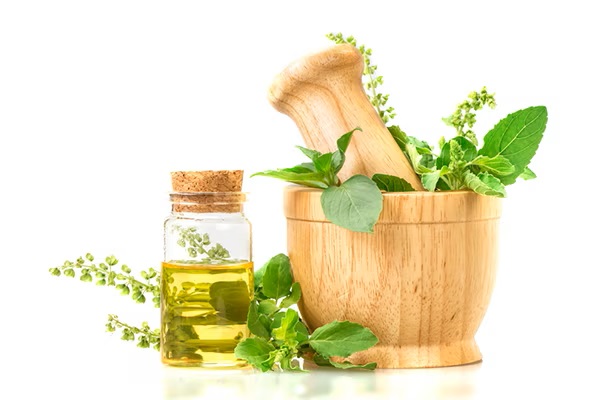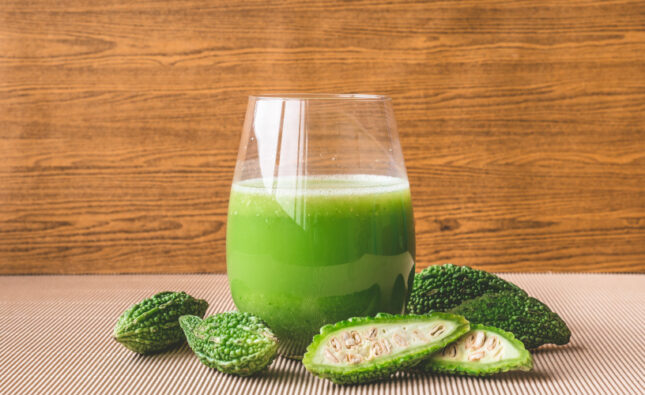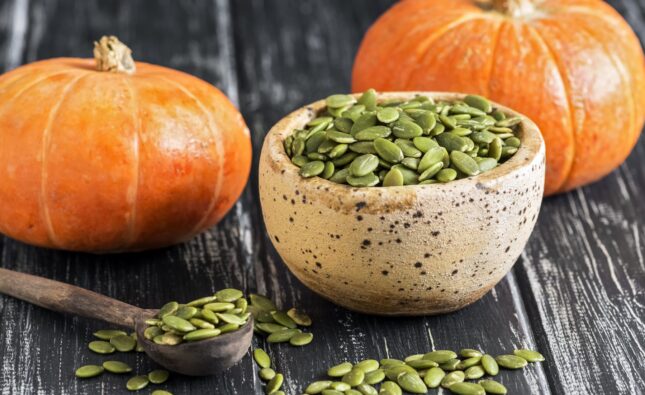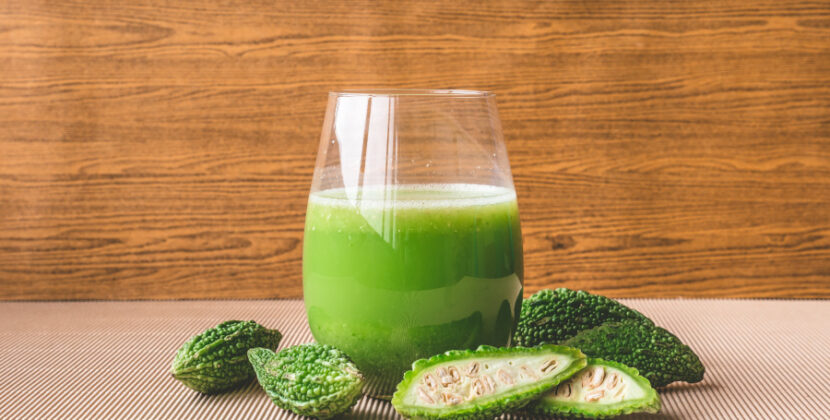Amazing Health Benefits of Tulsi (Holy Basil)& its Nutrient Value
Tulsi, also known as Holy Basil (Ocimum sanctum), is a sacred herb widely used in traditional Ayurvedic medicine. It is highly valued for its various health benefits, and several scientific studies have supported its medicinal properties. Some of the key health benefits of tulsi include:
1. Immune System Boost:
Tulsi is rich in antioxidants and essential oils that help boost the body’s immune system. Regular consumption of tulsi tea or leaves can aid in protecting the body against infections, viruses, and other harmful pathogens.
2. Stress Relief:
Tulsi is considered an adaptogenic herb, meaning it helps the body adapt to stress and promotes a sense of calm and relaxation. It can help reduce anxiety and mental fatigue.
3. Respiratory Health:
The essential oils present in tulsi have antimicrobial and anti-inflammatory properties, making it effective in treating respiratory issues like coughs, colds, and asthma. Tulsi leaves are often used in home remedies for respiratory ailments.
4. Digestive Health:
Tulsi can promote healthy digestion and alleviate gastrointestinal issues such as bloating, indigestion, and stomach cramps. It may also help improve gut health by supporting the growth of beneficial gut bacteria.
5. Cardiovascular Support:
Some studies suggest that tulsi may help lower blood pressure and cholesterol levels, thus contributing to better heart health. It may also help prevent blood clot formation and improve blood circulation.
6. Anti-inflammatory Properties:
The phytochemicals in tulsi have anti-inflammatory properties that can be beneficial in reducing inflammation and easing pain associated with conditions like arthritis.
7. Antibacterial and Antiviral Activity:
Tulsi exhibits strong antibacterial and antiviral properties, which can help prevent and treat infections caused by various pathogens.
8. Skin Health:
The antioxidant and antimicrobial properties of tulsi make it beneficial for maintaining healthy skin. It may help in treating acne, preventing skin infections, and promoting a clear complexion.
9. Liver Protection:
Tulsi is believed to have hepatoprotective properties, meaning it can help protect the liver from damage caused by toxins and pollutants.
10. Anti-diabetic Effects:
Some studies suggest that tulsi may have a positive impact on blood sugar levels and could be helpful in managing diabetes.
11. Tulsi for Hair care
Tulsi, also known as Holy Basil, is not only beneficial for overall health but also offers excellent benefits for hair care. Its rich nutrient profile and therapeutic properties make it a natural remedy for various hair issues. Here are some ways in which Tulsi can be used for hair care:
-
Strengthens Hair:
Tulsi contains essential nutrients like vitamins A and C, which nourish the hair follicles and strengthen the hair from the roots. This can help reduce hair fall and breakage, promoting healthier and more resilient hair.
-
Controls Dandruff:
Tulsi has potent antifungal and antimicrobial properties that make it effective in controlling dandruff and scalp infections. Using tulsi-infused hair products or applying tulsi oil to the scalp can help alleviate dandruff issues.
-
Promotes Hair Growth:
The nutrients in tulsi, along with improved scalp health, stimulate hair growth and promote thicker, fuller hair. It can be beneficial for those experiencing hair thinning or hair loss.
-
Adds Shine and Luster:
Tulsi can enhance the natural shine and luster of the hair. Regular use of tulsi-infused hair rinses or hair masks can make your hair look healthy and radiant.
-
Reduces Hair Graying:
Tulsi is believed to possess properties that may slow down premature graying of hair. It is used in traditional hair care remedies to retain the natural color of the hair.
-
Conditions Hair:
Tulsi leaves have conditioning properties that can soften the hair and make it more manageable. Tulsi hair masks or conditioners can help improve the texture of the hair.
-
Soothes Scalp Irritation:
If you have an itchy or irritated scalp, the calming and anti-inflammatory properties of tulsi can provide relief and comfort.
-
Minimizes Hair Breakage:
Regular use of tulsi can help minimize hair breakage and split ends, ensuring healthier and longer hair.

How to Use Tulsi for Hair Care:
-
Tulsi Hair Oil:
Infuse tulsi leaves in coconut or sesame oil and leave it in a cool, dark place for a few days. Use this oil to massage your scalp and hair regularly.
-
Tulsi Hair Mask:
Crush fresh tulsi leaves and mix them with yogurt or aloe vera gel to form a hair mask. Apply this mixture to your scalp and hair, leave it on for 30 minutes, and then rinse thoroughly.
-
Tulsi Hair Rinse:
Boil tulsi leaves in water, let it cool, and use it as a final hair rinse after shampooing. It can add shine to your hair and help with dandruff control.
-
Tulsi-Infused Hair Products:
Look for hair care products that contain tulsi as an ingredient or natural extracts for added hair benefits.
While Tulsi can be highly beneficial for hair care, individual results may vary. If you have specific scalp or hair conditions, it’s always a good idea to consult with a dermatologist or hair care expert for personalized advice and treatment.
12. Tulsi for Weight Loss
Looking to shed those extra pounds effortlessly and naturally? Look no further than the miraculous Tulsi tea! This incredible herbal infusion is the key to achieving your weight loss goals without any harmful side effects. Tulsi tea is a powerful fat-burning elixir that can supercharge your weight loss journey. Simply drinking two cups of tulsi tea a day can make a remarkable difference in your quest for a slimmer figure. The best part? Tulsi tea I completely natural, making it a safe and gentle option for those looking to shed unwanted pounds.
Nutritional composition of Tulsi (Holy Basil)
Tulsi, also known as Holy Basil (Ocimum sanctum), is a nutrient-rich herb that offers a range of vitamins, minerals, and other essential compounds. The nutrient value of tulsi can vary based on factors such as soil quality, growing conditions, and the specific part of the plant consumed (leaves, stems, seeds, etc.). Here is an overview of the key nutrients found in tulsi leaves:
Calories: Approximately 23 kcal
1. Carbohydrates: About 2.65 grams
2. Protein: Approximately 3.15 grams
3. Fat: Around 0.6 grams
4. Dietary Fiber: Approximately 1.6 grams
5. Vitamin A: Approximately 5275 IU (105% of the Daily Recommended Intake)
6. Vitamin C: Around 18 milligrams (30% of the Daily Recommended Intake)
7. Vitamin K: Approximately 414 micrograms (518% of the Daily Recommended Intake)
8. Vitamin B6 (Pyridoxine): Approximately 0.155 milligrams (8% of the Daily Recommended Intake)
9. Folate (Vitamin B9): Approximately 68 micrograms (17% of the Daily Recommended Intake)
10. Calcium: Around 177 milligrams (18% of the Daily Recommended Intake)
11. Iron: Approximately 3.17 milligrams (18% of the Daily Recommended Intake)
12. Magnesium: Around 61 milligrams (15% of the Daily Recommended Intake)
13. Potassium: Approximately 295 milligrams (8% of the Daily Recommended Intake)
14. Phosphorus: Around 57 milligrams (6% of the Daily Recommended Intake)
How To Use Tulsi (Holy Basil)
Tulsi, or Holy Basil, can be used in various forms and ways to harness its medicinal and culinary benefits. Here are some common ways to use tulsi:
1. Tulsi Tea:
One of the most popular ways to use tulsi is by making tulsi tea. Simply boil water and add fresh or dried tulsi leaves to it. Let it steep for a few minutes before straining. You can drink it as is or add honey and a squeeze of lemon for added flavor.
2. Tulsi Infused Water:
Add a few fresh tulsi leaves to a pitcher of water and let it infuse overnight. Drinking this infused water throughout the day can be refreshing and beneficial.
3. Culinary Uses:
Fresh tulsi leaves can be used in cooking to add a distinctive flavor to various dishes. They can be added to salads, soups, curries, and stir-fries. Dried tulsi leaves can also be used as a spice or seasoning.
4. Tulsi Extract or Tincture:
Tulsi extract or tincture can be found in health food stores or can be made at home. It is a concentrated form of tulsi and can be added to water or other beverages.
5. Tulsi Supplements:
Tulsi is available in supplement form, such as capsules or tablets. These supplements may contain dried tulsi leaf powder or tulsi extract.
6. Topical Applications:
Crushed fresh tulsi leaves or tulsi essential oil can be applied topically to the skin to treat insect bites, minor wounds, or skin infections. However, it’s essential to do a patch test first to check for any allergic reactions.
7. Tulsi Face Masks:
Tulsi leaves can be ground into a paste and used as a face mask to cleanse and rejuvenate the skin.
8. Tulsi Oil:
Tulsi essential oil can be used in aromatherapy, diluted with a carrier oil, or added to bathwater for relaxation and stress relief.
9. Tulsi Garland or Pooja:
In some cultures, tulsi leaves are used to make garlands or offered during religious rituals and prayers.
10. Tulsi Mouthwash:
Boil fresh tulsi leaves in water, let it cool, and use it as a mouthwash for oral health benefits.
11. Tulsi Inhalation:
Inhaling steam infused with tulsi leaves can be helpful for respiratory health.






